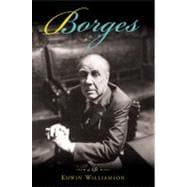
Note: Supplemental materials are not guaranteed with Rental or Used book purchases.
Purchase Benefits
What is included with this book?
| Preface | p. vii |
| Acknowledgments | p. xiii |
| The Sword and the Dagger (1899-1921) | p. 1 |
| Family and Nation | p. 3 |
| Mother and Father | p. 17 |
| Childhood (1899-1914) | p. 32 |
| Geneva (1914-1919) | p. 55 |
| Spain (1919-1921) | p. 68 |
| A Poet in Love (1921-1934) | p. 91 |
| Buenos Aires (1921-1923) | p. 93 |
| Second Visit to Europe (1923-1924) | p. 115 |
| Adventures in the Avant-Garde (1925) | p. 130 |
| The Aleph (1926) | p. 139 |
| Rejection (1926-1927) | p. 149 |
| Revenge and Defeat (1927-1930) | p. 160 |
| Experiments in Fiction (1930-1932) | p. 175 |
| The Rivals (1933-1934) | p. 191 |
| A Season in Hell (1934-1944) | p. 205 |
| Failure (1934-1935) | p. 207 |
| Isolation (1936-1937) | p. 217 |
| The Death of Father (1938-1939) | p. 230 |
| The Example of Dante (1939-1940) | p. 240 |
| The Garden of Forking Paths (1940-1944) | p. 256 |
| Of Hell and Heaven (1944-1969) | p. 273 |
| The "New Beatrice" (1944-1946) | p. 275 |
| Humiliation and Anguish (1946-1947) | p. 291 |
| False Hopes (1947-1950) | p. 299 |
| Borges Against Peron (1950-1955) | p. 311 |
| La Revolucion Libertadora (1955-1959) | p. 326 |
| The Rule of Mother (1958-1963) | p. 342 |
| Deconstructions (1963-1967) | p. 355 |
| Marriage (1967-1968) | p. 369 |
| Love Regained (1969-1986) | p. 383 |
| Iceland (1969-1971) | p. 385 |
| Between Sunset and Dawn (1971-1975) | p. 403 |
| A New Dawn in Iceland (1975-1976) | p. 416 |
| Blue Tigers (1976-1979) | p. 428 |
| The Music of Japan (1979-1981) | p. 441 |
| Deconstructing the Nation (1980-1983) | p. 452 |
| The Weaver of Dreams (1984-1985) | p. 468 |
| Creating an End (1985-1986) | p. 481 |
| Epilogue | p. 490 |
| Glossary of Argentine Terms | p. 493 |
| Notes | p. 495 |
| Bibliography | p. 537 |
| Table of Contents provided by Ingram. All Rights Reserved. |
The New copy of this book will include any supplemental materials advertised. Please check the title of the book to determine if it should include any access cards, study guides, lab manuals, CDs, etc.
The Used, Rental and eBook copies of this book are not guaranteed to include any supplemental materials. Typically, only the book itself is included. This is true even if the title states it includes any access cards, study guides, lab manuals, CDs, etc.